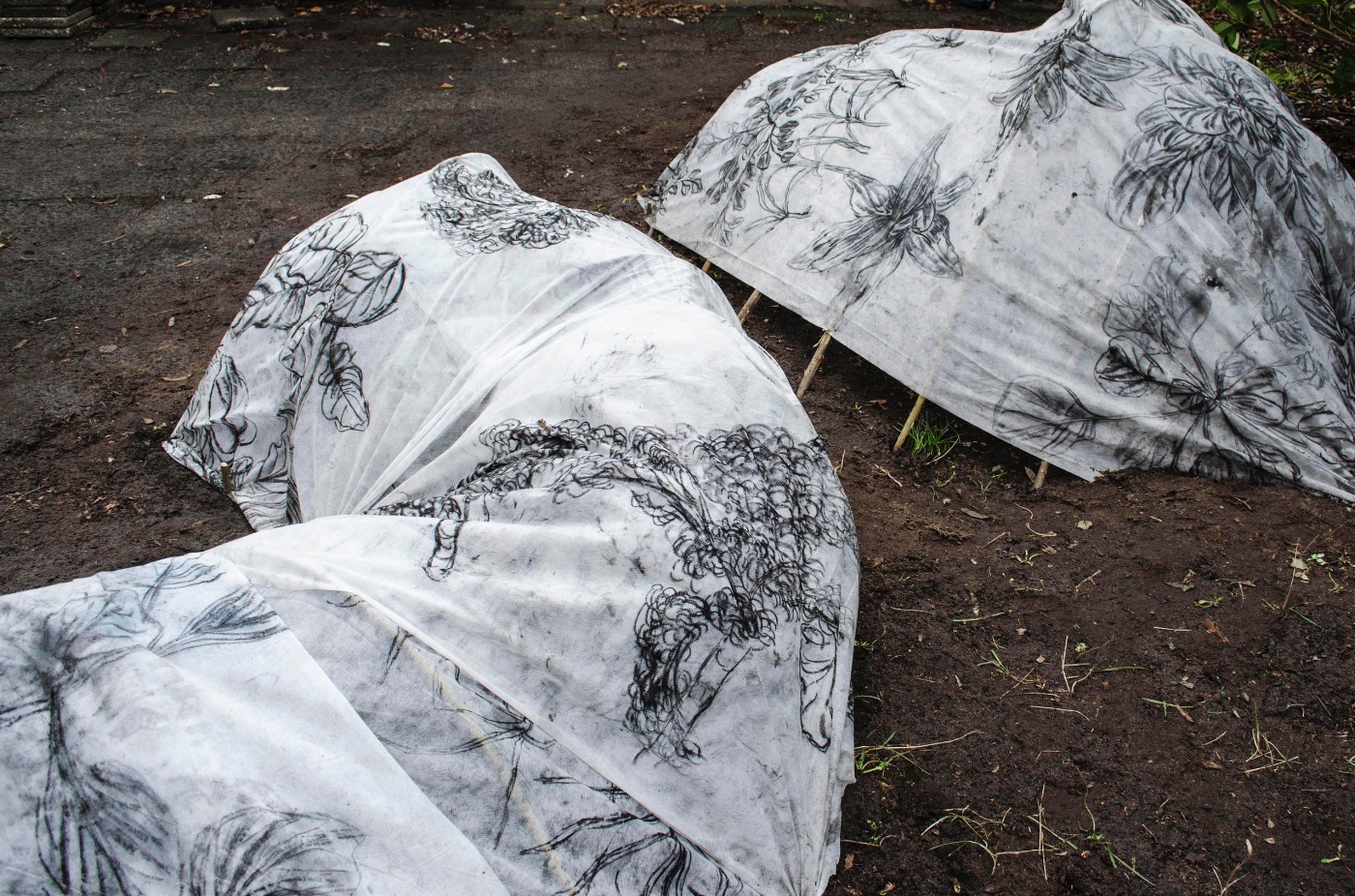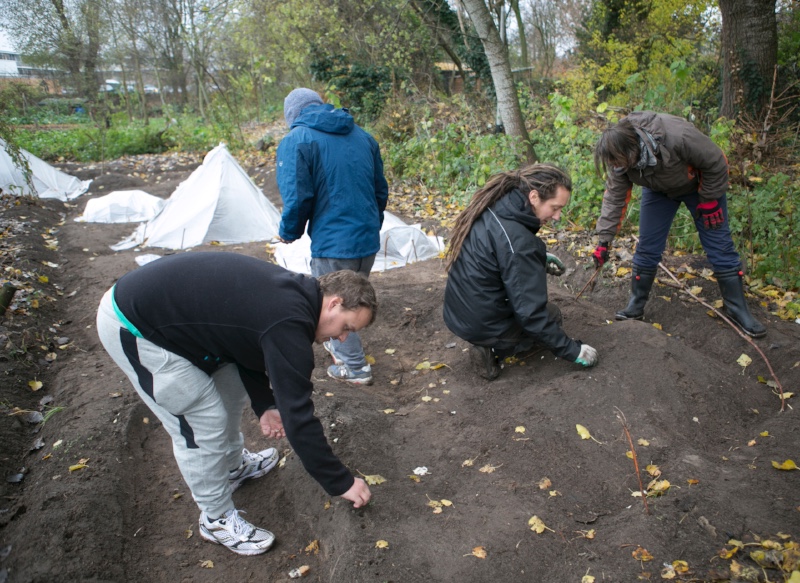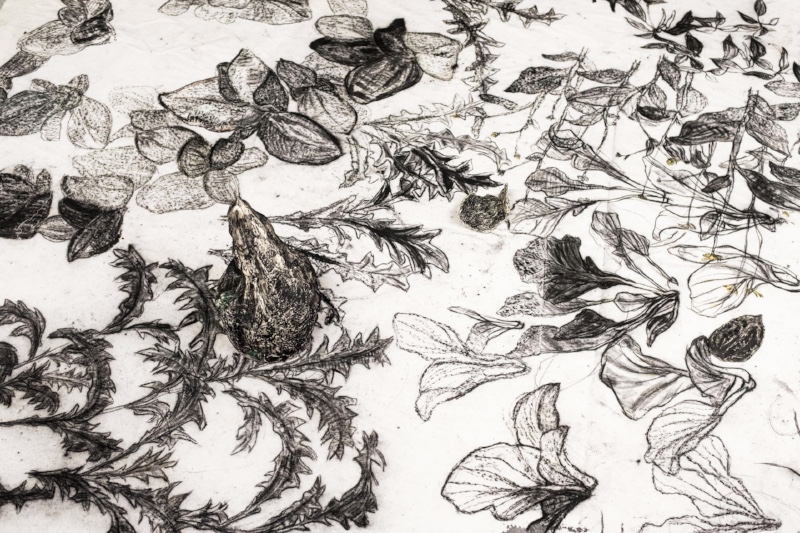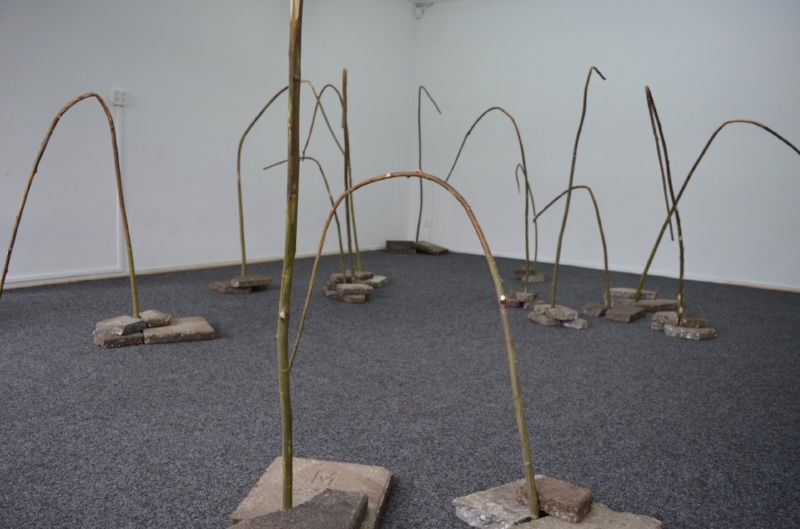 Agenda
Artikelen
Programma
Agenda
Artikelen
Programma

Peng Zhang (1990, CN)
Interview by Daniela Apice
DA: During your recidency at Witte Rook, you maintained a garden in Den Bosch. How did this influenced your work process?
From november on, I make use of a field which is protected by a farming community named ‘Transfarmer’ located in the suburban area Graafse Akker in ’s-Hertogenbosch.
I spent the last winter there to question how inclusive my art practice can be. To give you a bit of background, I come from an idyllic village in the South of China. Each family has a vegetable garden for their own use. The gardens in my villages actually function as a communal space for the local people: They help each other with planting and they socialize there. It is a very interactive place. I treated the garden in Den Bosch as a communal space, I organised some events there. For example, I invited people from the neighbourhood to plant together and to share experiences about gardening.
My final works, here in Witte Rook, are related to my parent’s garden: To the rural life of my village actually. But for me, the idea of a garden is more of an abstract concept because I can treat ‘outside’ as well as ‘indoor’ as a source of inspiration to make works. When I saw the garden yard at Witte Rook, the idea of what I would do here came up: And that was working with my memory about the rural life of my village. Even still, working as I did in the garden in Den Bosch inspired me to make new drawings and to organise events.
 Collaborative gardening at Transfarmer, Graafse Akker, ’s-Hertogenbosch. Winter 2018.
Collaborative gardening at Transfarmer, Graafse Akker, ’s-Hertogenbosch. Winter 2018.
DA: The title of the show, ‘Paradise Garden.111′ refers to the memory you have spending time in your parents’ garden.
My parents’ garden was always a Paradise for me. I did lots of funny things inside there throughout the seasons: Imitating them planting vegetables, building earthy castles, drawing cartoons with charcoals (which I got from the kitchen oven) and playing games with friends. The local farmers in my village Shijian, in southern China, always built up these tiny greenhouses to protect their vegetables. In the garden in Den Bosch I constructed the same functional greenhouses and made some hills where I plant garlic on top. But I also drew, on the soil ground, with wooden sticks like I did when I was a child. Local inhabitants were welcome to participate and build on top of the collective garden. And to draw on their soil. I wanted the garden for them to be Paradise as well.
When planting the garlic and making the structure for the greenhouses, I really treated this gardening process as one of my artworks. For me, it is like making sculptures. These days, as I worked as an artist in residence of Witte Rook, I have found that farmers in winter time cover their land with non-woven fabric. According to the original greenhouses of my childhood, I have collected used fabrics from the farmers here and ‘planted’ vegetables with charcoal on the fabrics. The installation I made in the garden yard of Witte Rook ‘Paradise Garden.111’ (2019) contains these drawn upon fabrics.
 Paradise Garden. I, 2018, charcoal, ceramic, canvas, 300 x 500 cm.
Paradise Garden. I, 2018, charcoal, ceramic, canvas, 300 x 500 cm.
DA: In referring to ‘planting’ on the fabrics, to which extend is this sculptural approach important in your practise?
My material use of charcoal, fabrics, clay and soil is of the essence to reflect the relationship between the farmer, his land and nature. The agriculture nowadays is becoming increasingly technological advanced, we are currently loosing traditional craft skills. In my village, when working in the fields, the villagers bend over all day long with their faces towards the land and the back towards the sky, which is still common even today. During the making process here at Witte Rook and in my drawing practise more in general, I imitate the farmer’s postures by bending over or kneeling on the floor to ‘plant’ vegetables and to make ceramic toys on the canvas. The work ‘Farmers’ (2018),with its bended willows surrounded by bricks, symbolizes the phenomenon of the advanced technology which has facilitated farmers in cultivating their work.
The modern agriculture which I encounter living in the Netherlands functions merely as a background to activate my memory of life in rural China. The differences in environment inspired and motivated me to show the life of my childhood. The Den Bosch garden challenged me to make some sculptures out of soil as I did when I was a child. But there, the soil was very sandy and different than in my parents’ garden where the mud and clay would stick together. To show the contrast of the two gardens, I made footprints after working on the land here, as some days before, my mother Shuhua Li, had stepped with her muddy shoes on a piece of cloth after working in her garden in Shijian. This result I show through the work ‘Footprint’ (2018).
I define myself as a ‘farmer artist’. While working, I bent my body, like a farmer. I put a piece of canvas outside and work under the sun. And, as if the canvas has affected the soil, this posture lends me to touch ‘my’ land. My art works direct me towards my own identity as an artist.
 Farmers, in-situ installation Witte Rook Breda (January 2019), willow, bricks, size variable.
Farmers, in-situ installation Witte Rook Breda (January 2019), willow, bricks, size variable.